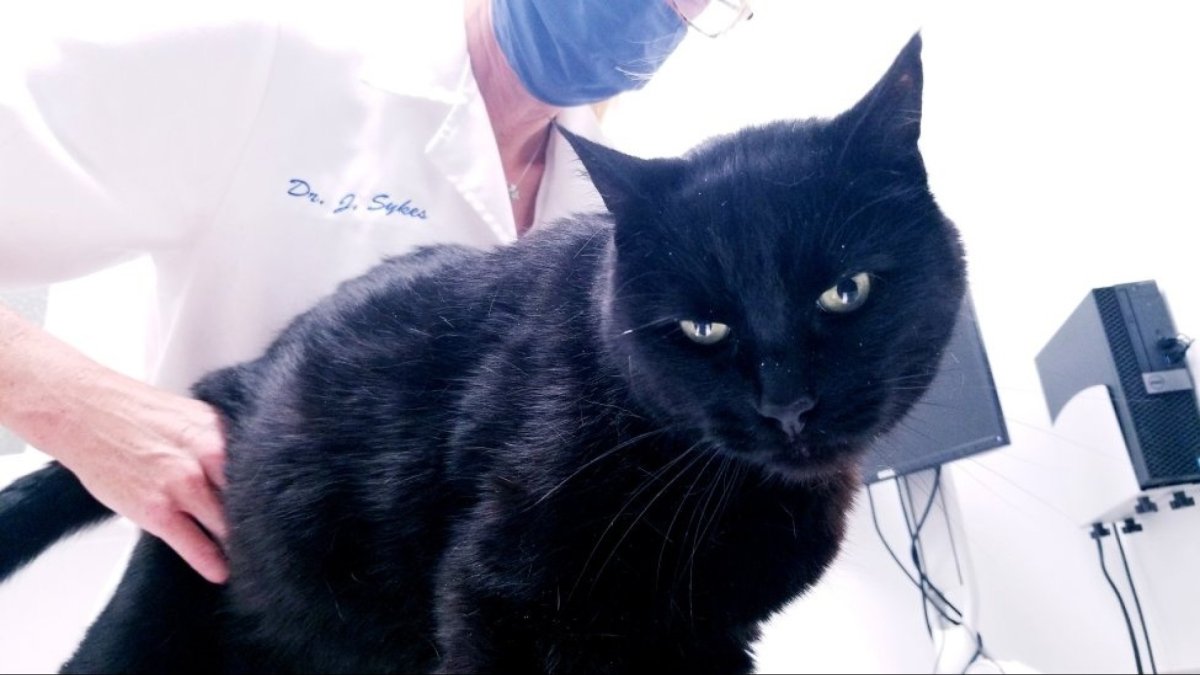
If you are sick with COVID-19 and your pet becomes sick, do not take your pet to the veterinary clinic yourself, warns the U.S. Department of Agriculture. Investigative reporter Candice Nguyen reports.
"If you are sick with COVID-19 and your pet becomes sick, do not take your pet to the veterinary clinic yourself," warns the U.S. Department of Agriculture, which is in charge of tracking and reporting COVID-19 in animals across the country.
The agency’s advice: "Call your veterinarian and let them know you have been sick with COVID-19."
Through mid-July, USDA data shows that cats and dogs account for nearly 80% of animal infections in the U.S. – 182 out of a total 217 cases. That total excludes minks, which have suffered thousands of deaths from COVID-19 at mink farms across the country. The chart below notes that 17 "mink premises" have had outbreaks during the pandemic.
Get a weekly recap of the latest San Francisco Bay Area housing news. Sign up for NBC Bay Area’s Housing Deconstructed newsletter.
Aside from house pets, USDA’s Animal Health Program has found the SARS-Cov-2 virus in several types of big cats, otters and non-human primates. In the U.S. and worldwide, the animal species hit hardest by the pandemic is the mink. Denmark euthanized 17 million minks last November when researchers discovered the virus had spread from humans to the minks – and then back to humans. The virus apparently mutated in the large mink farm population and then found its way back to workers handling the animals.
Local
The state of Utah reported nearly 10,000 mink deaths from COVID-19 last fall, which raises the concern: can the virus find an animal host, rearrange itself into a new variant and then spread to other animals and humans?
We know that sometimes cats may be able to get severe disease and die from the infection, but it's very rare.
Dr. Jane Sykes, professor of medicine and epidemiology, UC Davis School of Veterinary Medicine
“There is some evidence experimentally that when you infect cats, they can transmit it to other cats,” said Dr. Jane Sykes, professor of medicine and epidemiology at the UC Davis Veterinary Hospital.
Once infected, Sykes said cats can shed virus.
“That potentially could get transmitted, so there's still the potential, but there's no evidence right now that animals are an important source of infection for humans," Sykes said.
The main concern, for now, is infected humans will make their pets sick. Research shows cats catching the virus at higher rates.
“One of the reasons why cats may be more susceptible is they often are very close to people's faces when they're sleeping in beds with people,” said Sykes.
Researchers at the University of Glasgow in Scotland euthanized one cat because it became very sick with COVID-19, but recent studies show the vast majority of infected cats and dogs have mild symptoms or none at all.
At the Plant and Animal Health Agency in Surrey, England, scientists found that an animal’s vulnerability to the virus may depend on the presence of ACE2 receptors, which are the proteins that allow the coronavirus to infect a cell. The location of these receptors in the animal’s body and how many there are seem to play a major role in how sick an animal gets with COVID-19. Minks have the receptors in their lower respiratory tract, while cats have fewer receptors distributed higher up in their breathing system.
“The important point is this infection is spreading from people to the animals, not animals back to people,” said Sykes.
But since viruses can mutate quickly, a new variant, whether it comes from animals or people, can change everything.
What if a variant arises that is a lot more infectious for people’s companion animals?
Dr. Jane Sykes, professor of medicine and epidemiology, UC Davis School of Veterinary Medicine
“I think the concern would be what if a variant arises that is a lot more infectious for peoples' companion animals, and that can be transmitted back to people,” said Sykes.
Right now, there’s no evidence the delta variant can spread to animals and back to people, but Sykes says it’s crucial scientists continue to keep a close eye on any variants and their impact on all animals.
For CDC guidance on how to treat a pet if you suspect they have contracted COVID-19, click here.